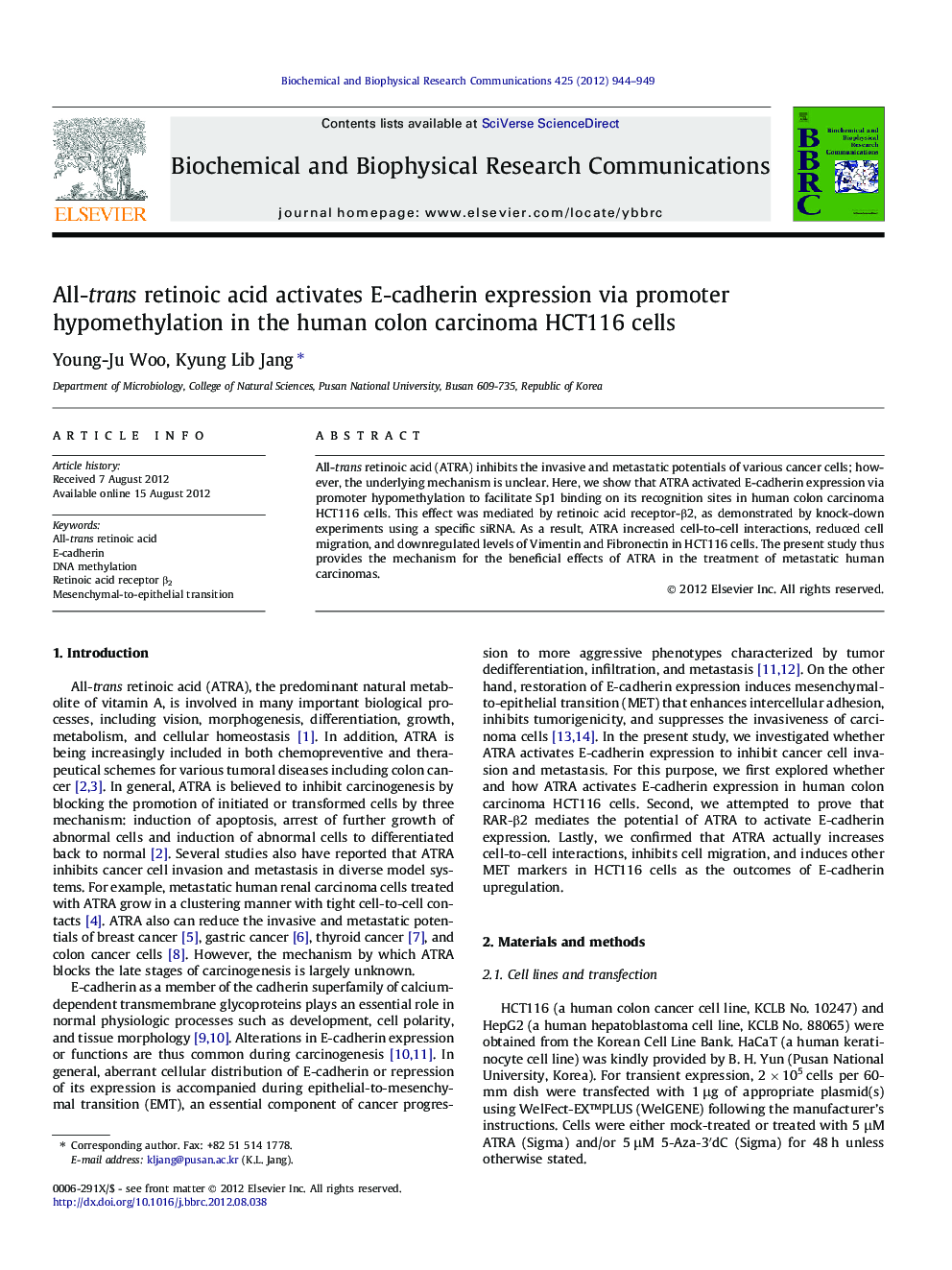| Article ID | Journal | Published Year | Pages | File Type |
|---|---|---|---|---|
| 1929634 | Biochemical and Biophysical Research Communications | 2012 | 6 Pages |
All-trans retinoic acid (ATRA) inhibits the invasive and metastatic potentials of various cancer cells; however, the underlying mechanism is unclear. Here, we show that ATRA activated E-cadherin expression via promoter hypomethylation to facilitate Sp1 binding on its recognition sites in human colon carcinoma HCT116 cells. This effect was mediated by retinoic acid receptor-β2, as demonstrated by knock-down experiments using a specific siRNA. As a result, ATRA increased cell-to-cell interactions, reduced cell migration, and downregulated levels of Vimentin and Fibronectin in HCT116 cells. The present study thus provides the mechanism for the beneficial effects of ATRA in the treatment of metastatic human carcinomas.
► ATRA activates E-cadherin expression via promoter hypomethylation. ► The hypomethylated E-cadherin promoter more efficiently recruits transcription factor Sp1. ► RAR-β2 mediates the potential of ATRA to activate E-cadherin expression. ► Upregulation of E-cadherin by ATRA results in mesenchymal to epithelial transition in HCT116 cells.
